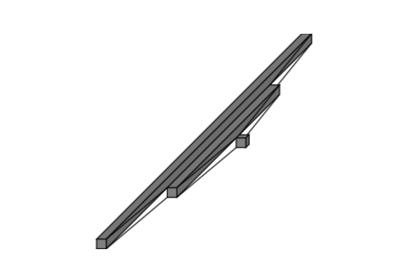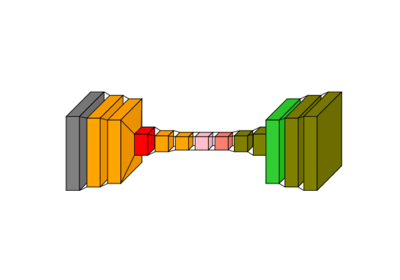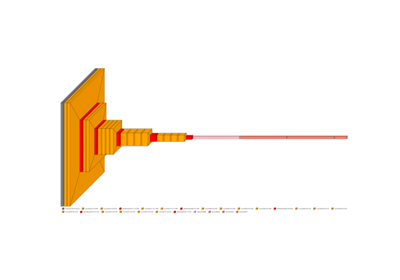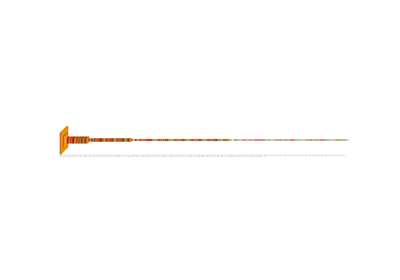Visualkeras: Spam Classification Conv1D Dense Example#
An example showing Spam the visualkeras function
used by a tf.keras.Model model.
# Authors: The scikit-plots developers
# SPDX-License-Identifier: BSD-3-Clause
Installing dependencies https://sphinx-gallery.github.io/stable/configuration.html#using-multiple-code-blocks-to-create-a-single-figure
%%bash # (e.g. %%bash or %%writefile) will be turned into a runnable code block. # pip install -q tensorflow # apt-get -qq install curl
# visualkeras Need aggdraw tensorflow
# !pip install scikitplot[core, cpu]
# or
# !pip install aggdraw
# !pip install tensorflow
# pip install protobuf==5.29.4
import tensorflow as tf
# Clear any session to reset the state of TensorFlow/Keras
tf.keras.backend.clear_session()
/home/circleci/.pyenv/versions/3.11.14/lib/python3.11/site-packages/keras/src/export/tf2onnx_lib.py:8: FutureWarning:
In the future `np.object` will be defined as the corresponding NumPy scalar.
model = tf.keras.models.Sequential()
model.add(tf.keras.layers.InputLayer(input_shape=(100,)))
# To convert 2D of input data into a 3D input
# Reshape to a compatible shape for Conv1D as [batch_size, time_steps, input_dimension]
# The Conv1D layer expects a 3D input: (batch_size, steps, channels).
# The Reshape layer now reshapes the input to (n_timesteps,n_features) like (100, 1),
# which matches the expected input of Conv1D.
model.add(
tf.keras.layers.Reshape((100, 1))
) # Shape: (batch_size, 100, 1), input_shape=(100,)
# Add Conv1D and other layers
model.add(tf.keras.layers.Conv1D(32, 1, strides=1, activation="relu"))
model.add(tf.keras.layers.Dropout(0.5))
model.add(tf.keras.layers.MaxPooling1D(pool_size=2))
# Flatten and add Dense layers
model.add(tf.keras.layers.Flatten())
model.add(tf.keras.layers.Dense(64, activation="relu"))
model.add(tf.keras.layers.Dense(32, activation="relu"))
model.add(tf.keras.layers.Dense(1, activation="sigmoid"))
# Compile the model
model.compile(optimizer="rmsprop", loss="binary_crossentropy", metrics=["accuracy"])
model.summary()
/home/circleci/.pyenv/versions/3.11.14/lib/python3.11/site-packages/keras/src/layers/core/input_layer.py:27: UserWarning:
Argument `input_shape` is deprecated. Use `shape` instead.
Model: "sequential"
┏━━━━━━━━━━━━━━━━━━━━━━━━━━━━━━━━━┳━━━━━━━━━━━━━━━━━━━━━━━━┳━━━━━━━━━━━━━━━┓
┃ Layer (type) ┃ Output Shape ┃ Param # ┃
┡━━━━━━━━━━━━━━━━━━━━━━━━━━━━━━━━━╇━━━━━━━━━━━━━━━━━━━━━━━━╇━━━━━━━━━━━━━━━┩
│ reshape (Reshape) │ (None, 100, 1) │ 0 │
├─────────────────────────────────┼────────────────────────┼───────────────┤
│ conv1d (Conv1D) │ (None, 100, 32) │ 64 │
├─────────────────────────────────┼────────────────────────┼───────────────┤
│ dropout (Dropout) │ (None, 100, 32) │ 0 │
├─────────────────────────────────┼────────────────────────┼───────────────┤
│ max_pooling1d (MaxPooling1D) │ (None, 50, 32) │ 0 │
├─────────────────────────────────┼────────────────────────┼───────────────┤
│ flatten (Flatten) │ (None, 1600) │ 0 │
├─────────────────────────────────┼────────────────────────┼───────────────┤
│ dense (Dense) │ (None, 64) │ 102,464 │
├─────────────────────────────────┼────────────────────────┼───────────────┤
│ dense_1 (Dense) │ (None, 32) │ 2,080 │
├─────────────────────────────────┼────────────────────────┼───────────────┤
│ dense_2 (Dense) │ (None, 1) │ 33 │
└─────────────────────────────────┴────────────────────────┴───────────────┘
Total params: 104,641 (408.75 KB)
Trainable params: 104,641 (408.75 KB)
Non-trainable params: 0 (0.00 B)
import matplotlib.pyplot as plt
from scikitplot import visualkeras
img_spam = visualkeras.layered_view(
model,
min_z=1,
min_xy=1,
max_z=4096,
max_xy=4096,
scale_z=6,
scale_xy=0.2,
font={"font_size": 14},
text_callable="default",
one_dim_orientation="x",
# to_file="./spam_conv_x.png",
save_fig=True,
save_fig_filename="spam_conv_x.png",
show_fig=True,
)
img_spam
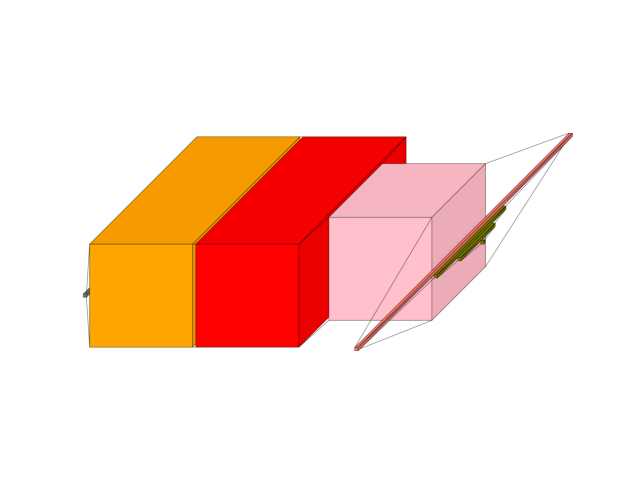
<matplotlib.image.AxesImage object at 0x7fe5d2618790>
img_spam = visualkeras.layered_view(
model,
min_z=1,
min_xy=1,
max_z=4096,
max_xy=4096,
scale_z=6,
scale_xy=0.2,
font={"font_size": 14},
text_callable="default",
one_dim_orientation="y",
# to_file="./spam_conv_y.png",
save_fig=True,
save_fig_filename="spam_conv_y.png",
)
img_spam
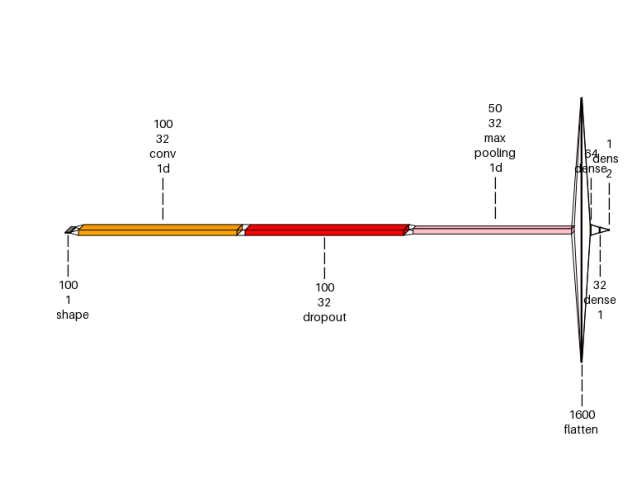
<matplotlib.image.AxesImage object at 0x7fe5d026cd90>
img_spam = visualkeras.layered_view(
model,
min_z=1,
min_xy=1,
max_z=4096,
max_xy=4096,
scale_z=0.2,
scale_xy=1,
font={"font_size": 9},
text_callable="default",
one_dim_orientation="z",
# to_file="./spam_conv_z.png",
save_fig=True,
save_fig_filename="spam_conv_z.png",
overwrite=False,
add_timestamp=True,
verbose=True,
)
img_spam
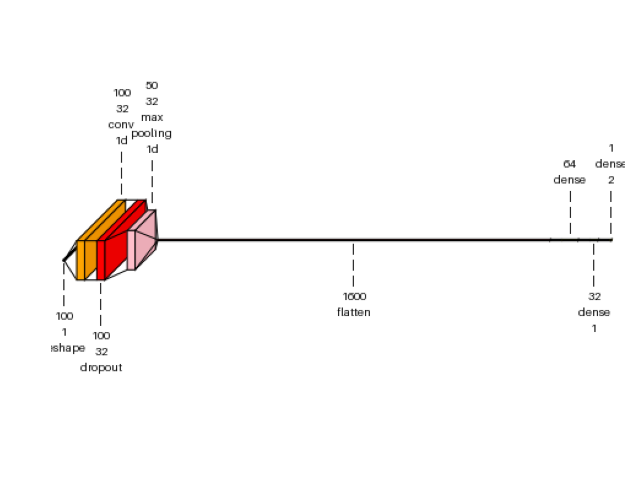
[INFO] Saving path to: /home/circleci/repo/galleries/examples/visualkeras_ANN/result_images/spam_conv_z_20260106_165606Z.png
<matplotlib.image.AxesImage object at 0x7fe5d00d5a90>
Total running time of the script: (0 minutes 4.963 seconds)
Related examples

